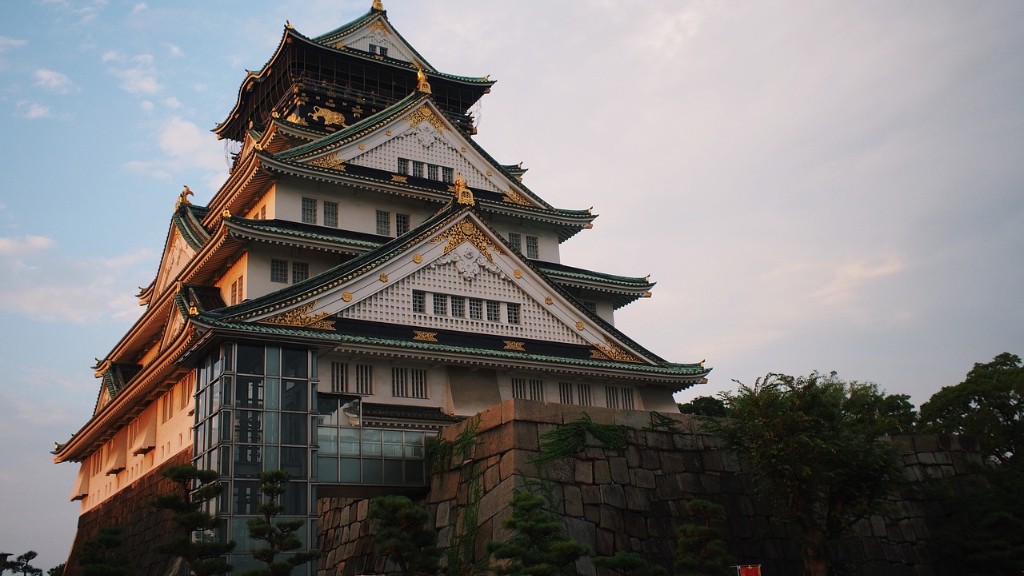Travel Requirements
U.S. citizens are eligible to stay in Japan for up to 90 days without a visa when they visit as a tourist. To gain entry into Japan, travelers must have a valid passport and a return ticket or onward ticket to another destination. For longer stays, visitors must apply for a tourist visa while still in the U.S. Visas must be applied for through a Japanese consulate, and require proof of accommodation, travel itinerary, and sufficient funds for the duration of one’s stay.
Transportation and Accommodation
Japan’s transportation infrastructure is among the best in the world, allowing travelers to easily get around the country. Popular modes of travel are the Japanese Rail Pass, Shinkansen (bullet trains) and domestic flights, all of which can be easily booked in advance. Japan also has a comprehensive bus and taxi network, for shorter trips. Accommodation in Japan varies from inns, traditional Japanese style guest house, to international chain hotels. There is always something for everyone, and hotel discounts may be available for those with a valid student ID.
Tips for Checking into Hotels in Japan
When checking into a hotel in Japan, make sure to carry your valid passport with you. This is a common practice, as the passport will be photocopied for registration and must be surrendered to the front desk until check-in time. Furthermore, it is important to be aware that your passport number may be checked against police records for verification purposes.
What to Expect When Dining Out in Japan
When dining out in Japan, expect to be served a wide variety of dishes. Traditional Japanese cuisine involves fish, rice, miso soup, tofu, and various vegetables. Tip etiquette in Japan is a little different than that in the U.S., as tips are traditionally not expected or required but they can be appreciated. Payment is usually made at the register. Furthermore, although smoking in public places is generally prohibited in Japan, some restaurants may allow it.
Cultural Considerations
Japan is renowned for its unique culture and traditions, which can be experienced through art, music, cuisine, and fashion. Japanese people are known to be polite and courteous, and visitors are expected to appropriately dress and show respect when in public places. Furthermore, the country uses unique customs to count time and measure distances, so visitors should familiarize themselves with the metric system before traveling.
Professional Attire
When attending a business meeting in Japan, professional attire is expected. Despite the warm climate, suits or dresses are the norm, and colors should be kept to darker shades. Having a printed business card with the full name and contact information helps to present oneself professionally, as it is customary in Japan.
Respecting Japanese Customs
Japan is a country that values its customs and traditions, so it is important to show respect when visiting. Not all customs are observed in the west, so it is important to familiarize oneself with the ways of greeting, accepting business cards and gifts, and bowing. Moreover, visitors should take extra consideration for religious sites when sightseeing, as these places require a specific form of dress and behavior.
Adventure Sports
Japan offers a plethora of activities for the adventure traveler; from skiing and snowboarding to white water rafting and paragliding, there is something for everyone. Tour operators and experienced guides provide thrilling expeditions and outdoor adventures, and most offer English speaking tour guides. Visiting during the winter season allows for some of the best skiing and snowboarding in the world, and during the summer months visitors can take part in a variety of outdoor activities, like trekking, biking, kayaking, and rafting.
Health and Safety in Japan
Japan is a very safe country overall, and U.S. citizens should take the same safety precautions they would anywhere else. The most common risks are related to theft, so it is important to keep valuable items safe and out of sight. Tourists are advised not to carry large sums of cash and to take advantage of the numerous ATMs available. Additionally, health care services are excellent, and travelers should make sure their insurance covers them abroad.
Gastronomic Delights
Japan is known for its food, and the variety of culinary experiences are limitless. From traditional Japanese dishes like sushi, tempura, and ramen, to local specialties like yakitori and okonomiyaki, there is something to tantalize the taste buds for everyone. During the summer months, some regional festivals (matsuri) include the production of local food specialties, and visitors should take advantage of the opportunity to experience street food and visit local eateries and bars.
Unique Shopping Experiences
Japan offers great shopping experiences, and visitors will find that the range and variety of items available for purchase is unparalleled. From traditional crafts and antiques to modern gadgets and designer clothing, there is something to suit any budget. Popular shopping destinations include Tokyo’s trendy Harajuku district, the bustling electronics markets of Akihabara, and the numerous department stores found throughout Japan. Furthermore, bargain hunters can get great deals at the flea markets and discount malls across Japan.
Interaction with Locals
Japan is an extremely friendly country, and visitors are often surprised by how helpful and polite the locals are. There is the language barrier, of course, but English is widely spoken among the younger generations and most restaurants and shops will have an English menu. Formality is important, so avoid getting too familiar with strangers or talking too loudly in public. English can be used when in doubt, and asking for help or directions is usually welcomed by locals.



